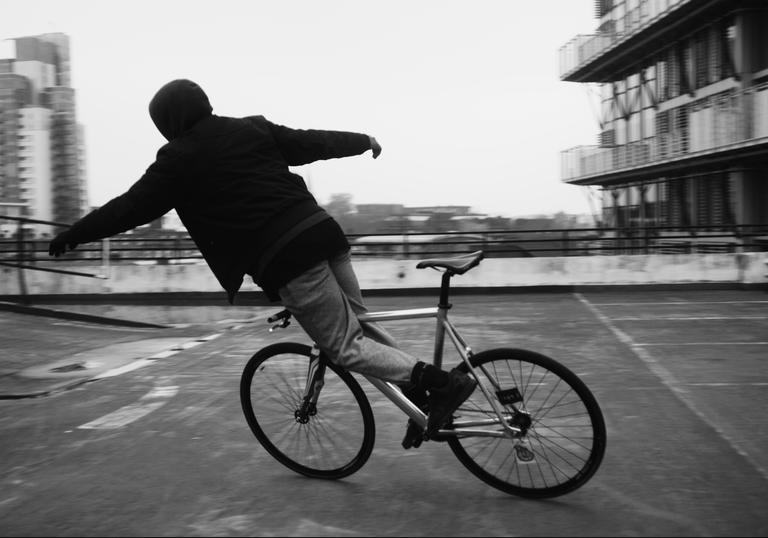How does your film respond to this month’s theme, Social Action?
The theme was of a particular interest to me because the youthful demographic featured is one that’s not generally the first that comes to mind when talking of leaders of social action projects.
The film is about the ‘Knives Down, Bikes Up’ movement which is a response to the knife violence epidemic that has been crippling London. This movement is a grassroots social action project started by some of London’s youths who have been personally affected by knife violence in their communities. It’s about breaking down barriers of neighbourhoods & creating a community around cycling London’s streets. Although the movement appears somewhat chaotic in approach they are beginning to have their voices heard in the wider community.
The pinnacle moment of this ‘Knives Down, Bikes Up’ movement is their bi-annual ride out called ‘Bikestormz’ in which approximately 3000 to 4000 London youths come together to promote the message of picking a bike instead of a knife & to unite people from different postcodes who share a collective interest.
There has been close to 40,000 knife related offences in the UK this year with the death toll rising to over 100. A growing number of children are becoming victims to knife violence with under 16’s most in danger whilst travelling home from school.
Knife violence in London is a problem that even the authorities are struggling to find an answer for. This community of riders is not claiming to be solving the issue, they’re just aiming to provide a sense of community for some of the youths who may be swayed by bad influences or violence.
As we were organising the shoot, the fatality numbers caused by knife violence kept climbing, which made me want to push harder to tell this story
Can you explain the process behind the making of your film?
The concept was to capture cycling in a different way, in a style akin to ballet or cinema. While being a human story piece at its core, I wanted the film to be quite artistic in its execution. We wanted to approach this in a very candid style so the shoot itself was a nimble, run & gun crew featuring myself & cinematographer, Charles Mori. We had an idea of what we wanted to capture with the riders but we also wanted them to lead the way for an authentic visual story.
An important part of this film for me was establishing an internalised tone for the dialogue. I really wanted to hear how Jake (our main talent) was pushed to start the movement after directly being affected by knife violence. I knew the message itself could be quite powerful, so juxtaposing something as gritty as cycling the streets of London against orchestral strings really guided the tone of this film into unique territory.
As we were organising the shoot, the fatality numbers caused by knife violence kept climbing, which made me want to push harder to tell this story. I’m incredibly proud of what we were able to make and I hope this message resonates with a wider audience so we can shine a light on this growing issue.
For some art can invoke something as simple as a feeling and for others it can inspire and compel them to act.
Do you think art really can be a vehicle for change?
Art to me is a way of communicating an idea to a wider audience. I think how that audience deciphers that idea is completely subjective and that’s quite interesting. For some it can invoke something as simple as a feeling and for others it can inspire and compel them to act.
About Matt Dempsey
Matt Dempsey is a London-based director specialising in documentary. His work plays within the field of documentary, lifestyle, music & fashion. With a variety of skills across filmmaking, Matt has defined his style through toeing the line between visual & narrative storytelling.



